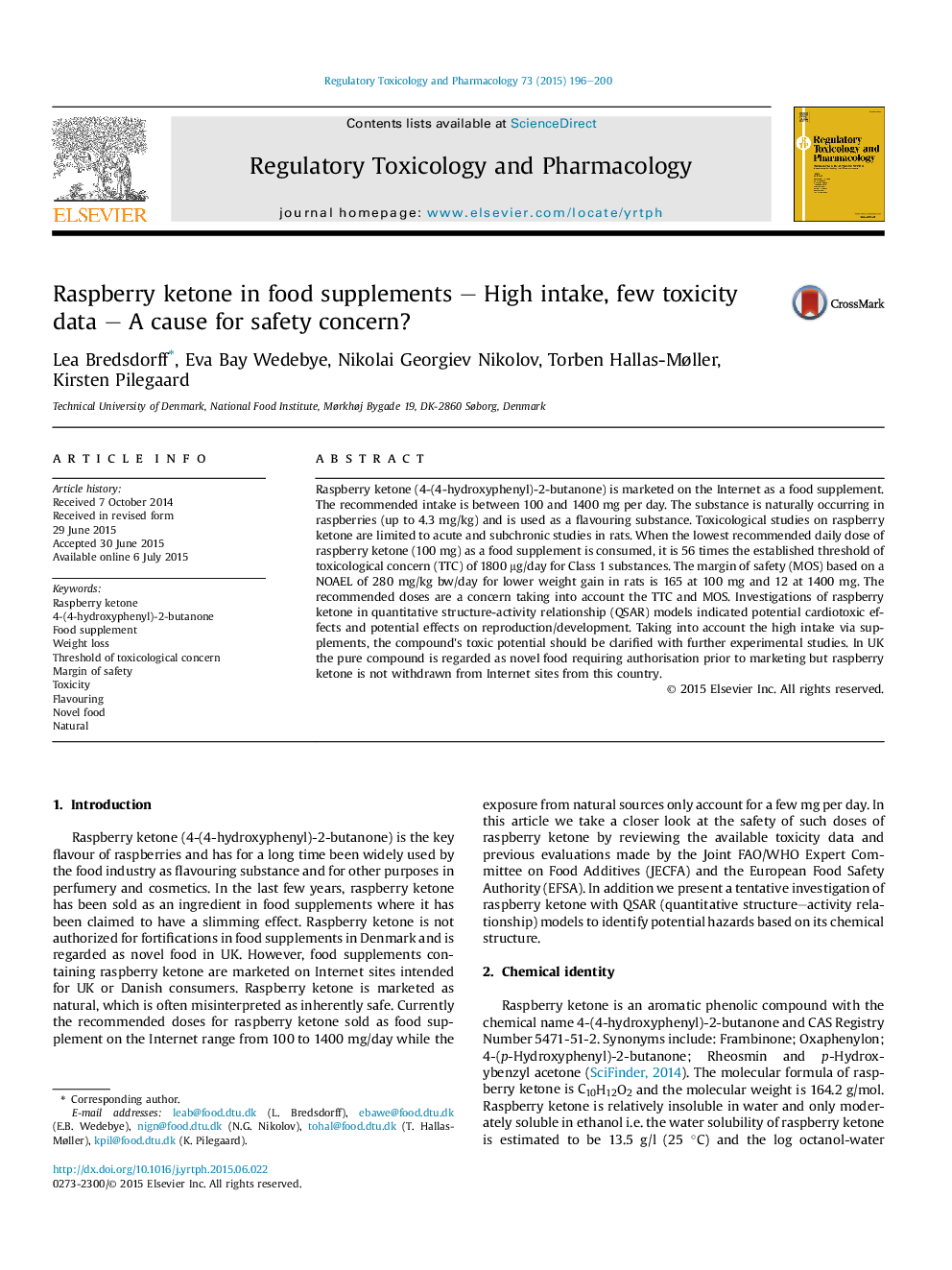| کد مقاله | کد نشریه | سال انتشار | مقاله انگلیسی | نسخه تمام متن |
|---|---|---|---|---|
| 5856313 | 1131973 | 2015 | 5 صفحه PDF | دانلود رایگان |
عنوان انگلیسی مقاله ISI
Raspberry ketone in food supplements - High intake, few toxicity data - A cause for safety concern?
ترجمه فارسی عنوان
کتون تمشک در مکمل های غذایی - مصرف زیاد، اطلاعات کم سمیت - علت نگرانی در مورد ایمنی چیست؟
دانلود مقاله + سفارش ترجمه
دانلود مقاله ISI انگلیسی
رایگان برای ایرانیان
کلمات کلیدی
موضوعات مرتبط
علوم زیستی و بیوفناوری
علوم محیط زیست
بهداشت، سم شناسی و جهش زایی
چکیده انگلیسی
Raspberry ketone (4-(4-hydroxyphenyl)-2-butanone) is marketed on the Internet as a food supplement. The recommended intake is between 100 and 1400 mg per day. The substance is naturally occurring in raspberries (up to 4.3 mg/kg) and is used as a flavouring substance. Toxicological studies on raspberry ketone are limited to acute and subchronic studies in rats. When the lowest recommended daily dose of raspberry ketone (100 mg) as a food supplement is consumed, it is 56 times the established threshold of toxicological concern (TTC) of 1800 μg/day for Class 1 substances. The margin of safety (MOS) based on a NOAEL of 280 mg/kg bw/day for lower weight gain in rats is 165 at 100 mg and 12 at 1400 mg. The recommended doses are a concern taking into account the TTC and MOS. Investigations of raspberry ketone in quantitative structure-activity relationship (QSAR) models indicated potential cardiotoxic effects and potential effects on reproduction/development. Taking into account the high intake via supplements, the compound's toxic potential should be clarified with further experimental studies. In UK the pure compound is regarded as novel food requiring authorisation prior to marketing but raspberry ketone is not withdrawn from Internet sites from this country.
ناشر
Database: Elsevier - ScienceDirect (ساینس دایرکت)
Journal: Regulatory Toxicology and Pharmacology - Volume 73, Issue 1, October 2015, Pages 196-200
Journal: Regulatory Toxicology and Pharmacology - Volume 73, Issue 1, October 2015, Pages 196-200
نویسندگان
Lea Bredsdorff, Eva Bay Wedebye, Nikolai Georgiev Nikolov, Torben Hallas-Møller, Kirsten Pilegaard,
